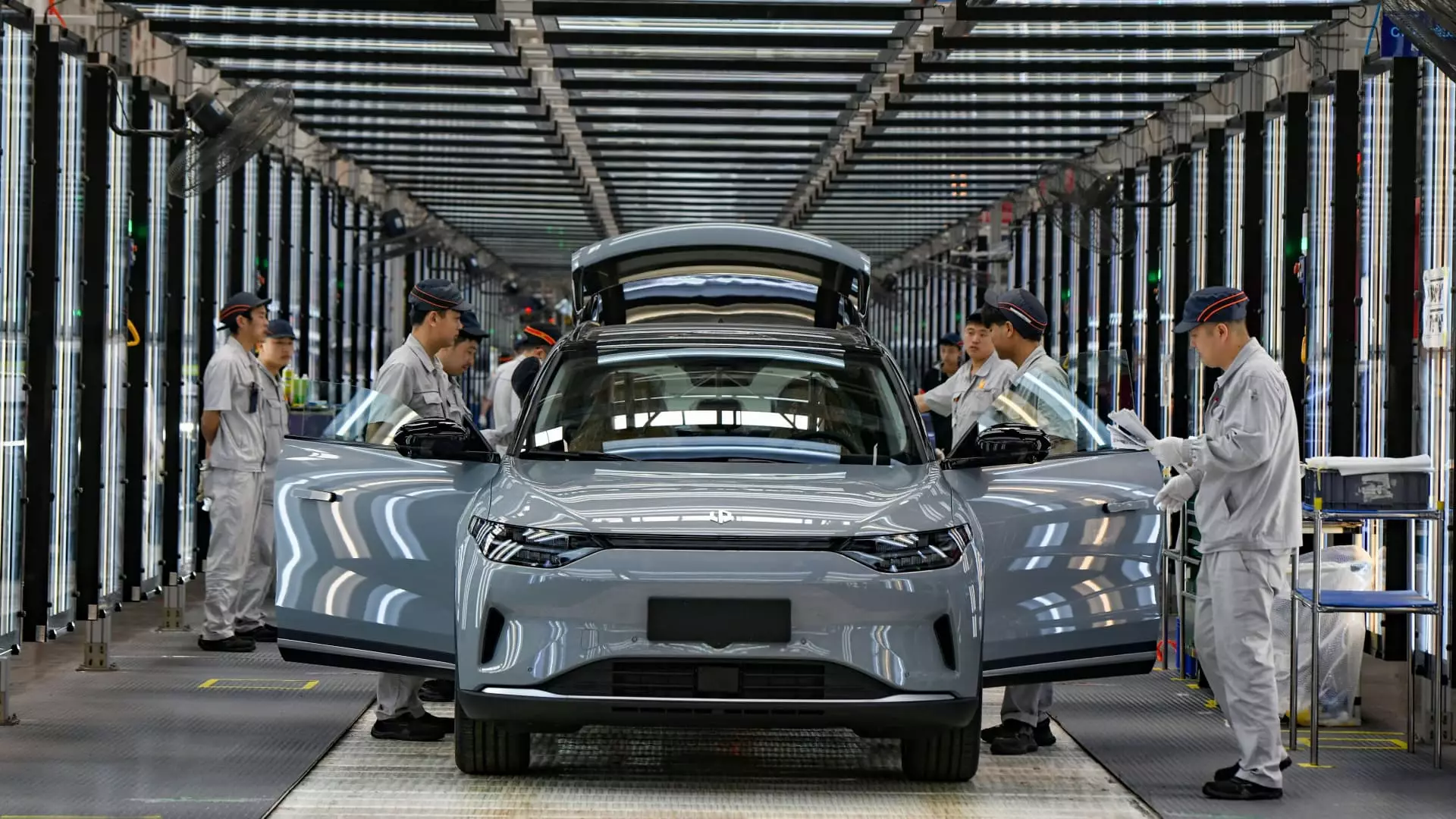The recent implementation of tariffs by the U.S. government has sent shockwaves through the automotive industry, stirring investor concern and sparking fears of a potential trade war. President Donald Trump’s executive orders, which impose a 25% tariff on imports from Mexico and Canada and a 10% tariff on goods from China, have raised alarms about the future of the automotive market. As major carmakers face declining stock prices, the repercussions of these trade restrictions extend beyond mere financial losses, hinting at a larger crisis in the auto industry.
Financial reactions to the tariff announcements were immediate. Several prominent auto manufacturers, including General Motors and Ford, saw significant declines in their stock prices, with drops of 6.6% and over 4%, respectively. European manufacturers were not spared either; French and Italian automotive companies experienced shares plummeting by 7.8% and 6%. Such declines illustrate the vulnerability of the global automotive sector to fluctuations in trade policy. The intense interconnectedness of supply chains, coupled with the industry’s heavy reliance on manufacturing in North America, particularly Mexico, means that tariffs can disrupt production schedules and lead to heightened operational costs.
The crisis extends to Asian automakers as well, with Japanese manufacturers like Toyota and Nissan experiencing downturns over 5%, highlighting a worldwide impact felt across multiple markets. The nearly 7.5% drop in Mazda’s shares underscores the ubiquitous nature of these tariffs and the immediate pressure they add to already faltering sales due to other economic challenges.
In response to the U.S. tariffs, both Canada and Mexico have threatened retaliatory measures that could further exacerbate tensions. Such actions could lead to an escalating cycle of tariffs that disrupt traditional trade alliances. The implications for the U.S. automotive market are significant. As production costs for vehicles rise, it is likely that these costs will be passed on to consumers, resulting in higher prices for vehicles on showroom floors. This could ultimately lead to reduced sales and sluggish growth in an already competitive market.
Moreover, the European Union has voiced its intent to respond proportionately to any U.S. trade barriers. The EU’s commitment to maintaining its automotive exports emphasizes the potential fallout from these tariffs. A shift in trade dynamics could lead to decreased availability of European vehicles in the U.S. market, causing financial ramifications for manufacturers reliant on American sales.
Economic analysts have noted that Trump’s tariffs could have an extensive impact on the global automotive industry, projecting significant disruptions in an already delicate market. The situation comes at a time when leading German automakers like Volkswagen, BMW, and Mercedes-Benz are already grappling with profit warnings due to weaker demand in key markets such as China. The imposition of tariffs further complicates their operational strategies, prompting these companies to reassess not only their pricing structures but also their long-term plans for growth.
Volkswagen’s acknowledgment of the potential effects of tariffs serves as a reminder of the currently perilous landscape of international trade. The company’s call for open markets reflects a growing concern that protectionist policies may hinder competitiveness and innovation.
The automotive sector is at a crossroads as it faces the dual challenges of domestic tariffs and the resulting international trade tensions. Both companies and consumers must navigate a climate of uncertainty that threatens the very fabric of the automotive market. With increasing calls for open trade and the protection of free markets, it is evident that constructive dialogue among trading partners is essential. Failure to achieve such communication could pave the way for further escalation, leading to long-lasting consequences not just for the automotive industry but for the larger global economy as well. The current situation underscores the importance of strategic partnerships and the need for a collaborative approach to prevent a trade conflict that would undoubtedly hinder growth and innovation.


Leave a Reply